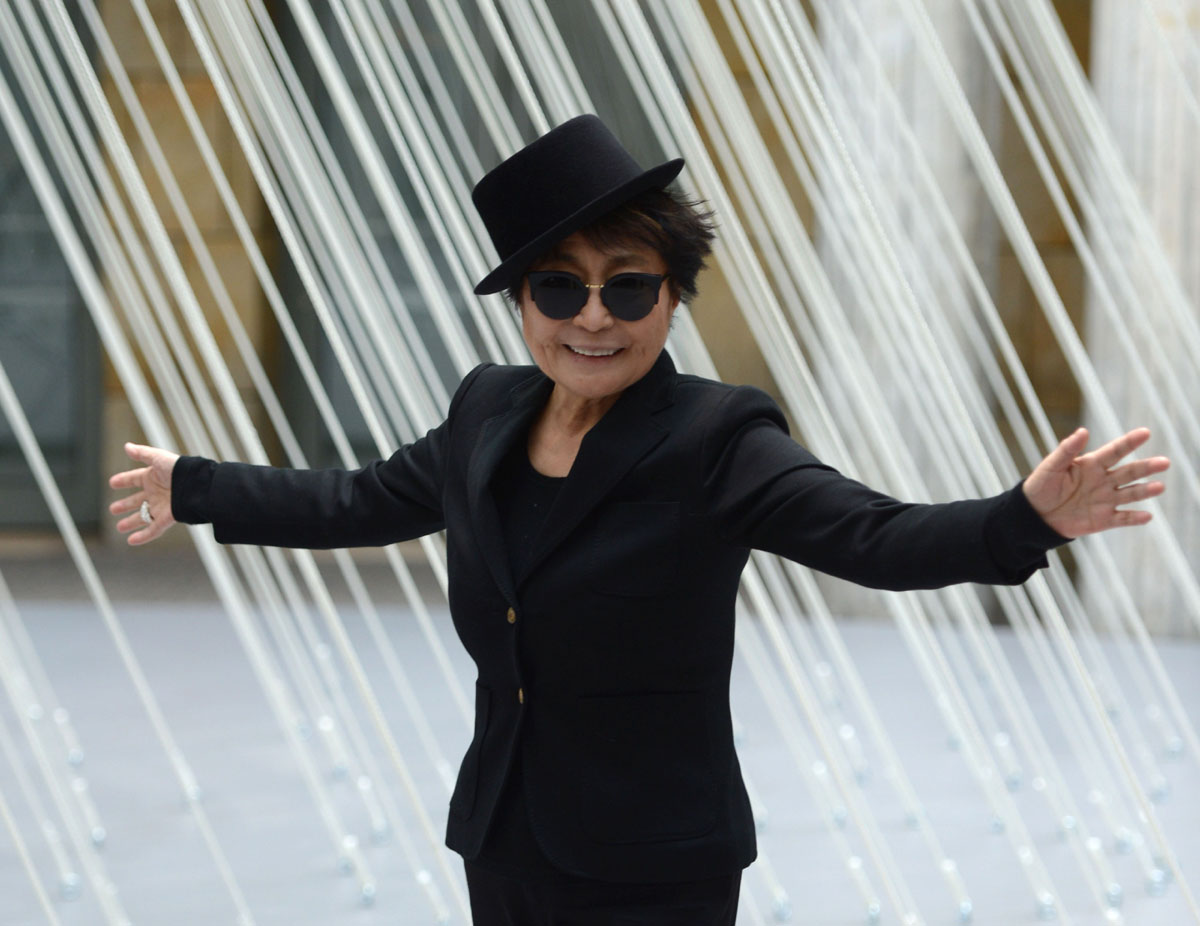Sitting at her kitchen table, sipping green tea, Yoko Ono looks much the same as she did when I met her 20 years ago. Dressed in black and peering intently over tinted spectacles, her face bears little trace of the passing of time and her diminutive form exudes utter calmness. Having crossed the famous threshold of the Dakota building, and been ushered through the interior of possibly the most exclusive address in Manhattan by her assistant, then instructed to leave my shoes at the door, I do feel like I have been granted an audience with a grand historical figure. Which, in a way, I have.
Having recently turned 80, the woman who was once regarded as a kind of latter-day witch who led John Lennon astray and broke up the Beatles, now occupies a more complex historical position in the pantheon of celebrity. She has been recognized belatedly as a pioneering conceptual artist, a musician and performer in her own right, and an activist in the spirit of her late husband. Her latest causes include campaigning for gun control and against fracking — the extraction of natural gas by cracking open shale rocks below the Earth's surface under high pressure. Quiet-spoken, but still outspoken, Ono's vision remains Utopian and her thinking seems utterly untroubled by the hard facts of contemporary geopolitical reality.
"I do feel that I am starting a new life at 80," she says, at one point, "a second life that will have so many things I didn't have in the first life. I don't know how long I am going to live, but my prediction is that we will have heaven on Earth in 2050. When I tell people this, they say, 'Oh, but you won't be there,' and I say, 'Well, who knows?' "



